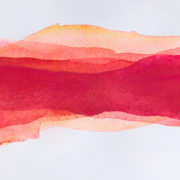Puberty is a normal part of development where your body starts to change from a kid to an adult. The purpose of puberty is to prepare the body for reproduction. The body changes that occur during puberty don’t happen overnight. Instead, they take years and occur in stages. People call these stages the Tanner Stages or the Sexual Maturity Rating and they are divided into five (5) stages. The stages of puberty typically start around age 8-10 and can last for 5-7 years, however, everyone develops differently and at their own pace. Some may enter puberty earlier than others and some may go through the stages faster.
Stage 1: Brain Work
During the first stage of puberty (often between the ages 8 to 10), an area of the brain called the hypothalamus starts to send signals to the rest of the body that it is time to start developing into an adult body. These signals are actually hormones that travel through your bloodstream and include gonadotropin-releasing hormone (GnRH), the luteinizing hormone (LH), and the follicle stimulating hormone (FSH). Yes, these hormones have some interesting names. What is most important, though, is that they work with one another to help us grow into the adult-size body we are meant to be!
Some of the various parts of the body that are stimulated to grow and change are your:
- external reproductive organs
- breast tissue
- skin
- muscles
- bones
- hair
- brain
This process of our brain releasing hormones takes time and we can’t visibly see these hormones being released. Yet, in the next stage, our bodies start releasing hormones to prepare for the next stages. Now that your body has started its first stage of puberty, it will continue to move into the next stage at its own pace. So get ready, as these are some exciting changes to come!
Stage 2: Noticeable Body Changes Begin
Stage 2 of puberty usually happens around 9-11 years old, but again, this is different for everybody. In this stage of development, you may begin to notice:
- Pubic hair starts to grow light on the outer lips of the vulva and/or at the base of the penis.
- Armpit hair may start to develop in some preteens.
- Body odor may become more apparent. This is because these hormones can increase sweating which combines with bacteria to create more smells.
- Reproductive parts are beginning to mature and get larger. For most assigned females at birth, this includes the uterus and vagina. For most assigned males at birth, this includes the testicles and the sac holding the testicles called the scrotum.
- For many assigned females, the development of the breasts begins under the nipples, which are called buds. These buds may appear like a bump or puffy area under or around the nipples. As this happens, the breast areas may feel sore or itchy at times – this is normal. As more time passes, the areola, the area around the nipples, also gets larger.
Some of these changes may seem awkward, however, it is all part of the journey your body will need to go through to become the awesome person you will grow to be.
Stage 3: More Obvious Body Changes Occur
Stage 3 of puberty usually happens around 12-13 years old, but again, this is different for everybody. In this stage of development, you may begin to notice:
- An increase in height. Some preteens think they grew taller overnight, yet it actually takes some time. Preteens may notice growth spurts of a few inches or more over the course of a year.
- An increase in body hair in new places of the body or darker hair in other places.
- The changing of body shapes, including more muscle development.
- For many females assigned at birth:
- The continued growth and expansion of the breast buds
- Noticeable armpit hair growing
- Acne may be appearing due to sebaceous glands under the skin becoming more active and may clog pores, leading to acne
- Hips and thighs expanding and growing larger
- For many males assigned at birth:
- The broadening of the shoulders
- Wet dreams (nocturnal emissions- sperm ejaculation during sleep) may occur for some
- “Cracking” of the voice due to the vocal cords growing
- Some breast tissue may develop; this usually disappears as time passes
Stage 4: A Lot More Obvious Body Changes Occur
During this stage (often during ages 13 – 14), many teenagers notice:
- Thicker pubic hair – pubic hair can grow more curly and coarse.
- For most females assigned at birth:
- Their first period (menarche) occurs between the ages of 12 and 14, although some get it much earlier. Clear or white vaginal discharge may appear up to 6 months prior to getting the first period.
- Breasts getting fuller
- For most males assigned at birth:
- Their penis, scrotum, and testicles getting bigger and the scrotum sac becoming darker in color
- A deeper voice becoming more apparent
- Acne may be appearing due to sebaceous glands under the skin becoming more active and pores in the skin getting clogged, leading to acne.
- Noticeable armpit hair growing
Stage 5: The Last Changes That Occur
During this final stage of puberty (often starts at age 15), many teenagers notice their bodies are more adult-like and adult-size. This includes:
- Height growth is slowing down.
- Pubic hair being fully grown and spreading into the inner thigh area.
- Genitals and reproductive organs being fully developed and adult size.
- For most females assigned at birth:
- Breast size and body shape including hip and buttocks areas are being formed. Yet both breasts and body shape can continue to change as a person ages due to hormones and habits.
- Periods becoming regular, and occurring on a monthly schedule.
- For most males assigned at birth:
- Facial hair has started growing
- Penis, testicles and scrotum start to reach their full size.
Puberty Stages FAQs
Is there a certain size that body parts need to be by the final stage?
No. Everyone’s body parts grow to the size they are meant to be. Some preteens and teens will have larger body parts than other preteens and teens. And some will have smaller body parts than others.
Who usually starts going through changes first?
When someone starts showing signs of puberty differs between all young people for a variety of reasons. Yet, we do see some biological females starting to experience physical signs before many biological males do. This happens due to the release of estrogen and progesterone, which is higher in biological females than biological males. Also, some biological females who have high percentages of body fat may experience changes earlier.
My genitals seem different from other preteens or teens. Is that okay?
Yes. No two preteens or teens will look exactly the same, including their genitals. And some young people are born with a wide range of natural body variations. For example, a person may have testicles and no penis. Or a person may have genitals of biological females and biological males. And there are other variations that exist in which all of these variations are okay.
What does intersex mean?
Intersex is the term used when a person is born with reproductive or sexual anatomy that is not “female” or “male” yet a variation of parts. For example, a person may appear to be a biological female on the outside, yet may have been born with biological male reproductive parts. Or a person may have been born with a larger clitoris and no vaginal opening. Sometimes the variations are noticed when a baby is born. Other times they appear as the preteen or teen approaches or begins puberty.
What if I am a preteen or teen with Down Syndrome? Will these body changes happen to me? Will I get moody too?
Yes! Bodily changes and moodiness are common for all preteens and teens.
I have autism. Will this puberty stuff happen to me?
Absolutely! Preteens and teens with autism have the same body parts of other preteens and teens. Having autism may affect how a preteen or teen communicates and behaves, yet it usually doesn’t affect body parts and pubertal changes.
I haven’t grown any taller yet and all my friends have. What does this mean?
Each preteen or teen will grow and enter puberty at their own rate and pace. Some may mature or see these changes sooner or later than others, and they will all happen differently for each young person. Being smaller or bigger than others during this phase of life is normal.






